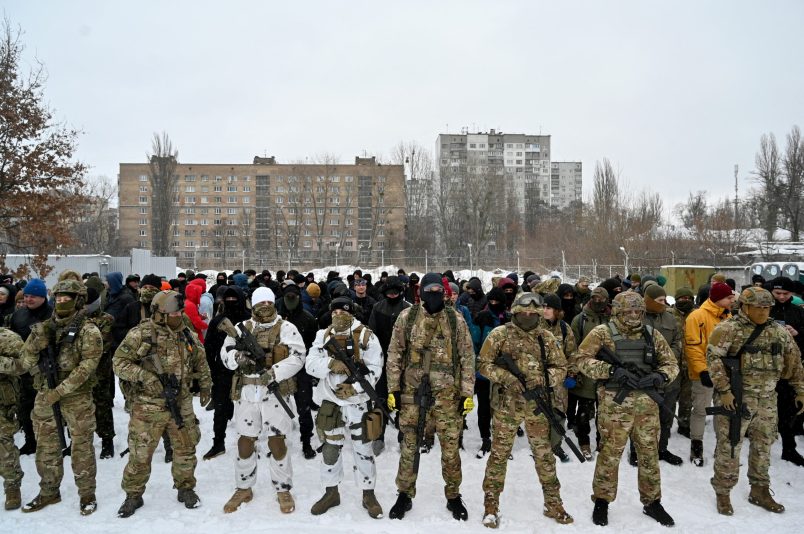For outsiders, it’s hard to understand how interconnected Russia and Ukraine are culturally, socially and historically. The upshot is a war between two countries that share much in common including deep, emotional bonds.
Putin distorts those commonalities for his own ends, but the truth is that the war pits families against families in a region where the border hasn’t alway been sharp or well-defined.
Russia and Ukraine have similar but distinct languages with similar but distinct alphabets. Both are in Cyrillic, but Ukrainian has a few letters that Russian does not have. Both countries practice different versions of Eastern Orthodoxy. The Soviet legacy means that little things like shops, government buildings and the memories of the elderly look very, very similar in each state.
Ukraine itself has the largest ethnic Russian diaspora in the world, with around 17 percent of the county identifying as ethnically Russian — a fact that Putin has twisted to suggest that his invasion, replete now with attacks on residential areas, is an attempt to save the country from “genocide.”
Some writers, before the invasion, described any potential war as “fratricidal.” Some of the commonalities extend also to Belarus.
It adds to the darkness and complexity of the unfolding war: for Russia, the war needs to be partly hidden not only because it’s very, very close to home, but because it’s risky; Russian shells may kill the relatives of Russian citizens.
Before the Soviet Union fell in 1991, the border between the two countries was much less meaningful. When the USSR collapsed into its constituent republics, tons of Ukrainians left for the comparatively wealthier Russia — Moscow, specifically — for work.
But in the chaos of the fall, many Russians and people from other former republics wound up in Ukraine. I once interviewed a stateless man in Kyiv who, living in Moscow during the fall of Communism, refused to accept a new passport. He ended up marrying a Ukrainian woman, didn’t apply for a new one and, after the time period to apply ran out, found himself in Kyiv, but a citizen of no country.
That’s an unusual example, however. Typically, it’s Ukrainians with family in Russia, or Russians maintaining ties with relatives across Ukraine.
Since 2014, that’s changed somewhat. People whose childhood friends left for Russia no longer discuss politics; some families have been torn apart by the divide.
Putin and some other Russian leaders have used this history in the past to talk about Ukrainians as a “brotherly people.” In the current war, there isn’t much discussion of the Ukrainian people and what they might want at all from the Russians.
None of this is intended to fall into Putin’s talking point — increasingly adopted by the American far-right — that the two countries are somehow “one people.” Ukraine’s willingness to fight back over the past week its itself a testament to their desire to be separate.
It’s rather to offer context: that there’s a reason a war against Ukraine would be extremely hard to sell in Russia. It’s way too close to home.



